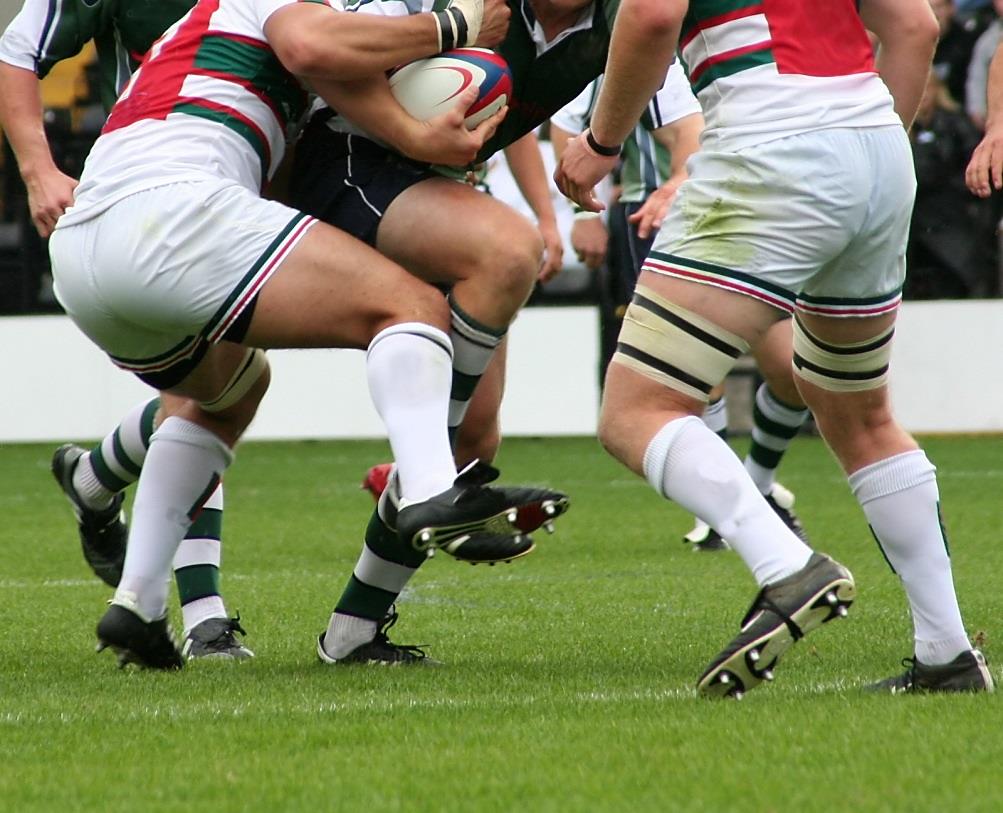
by Belinda Ollewagen | Sep 19, 2018 | water cooler
We all know how important it is to remain properly hydrated, but that doesn’t just mean ensuring we make regular trips to the water cooler and eat water-rich foods every day, it also means avoiding those foods or drinks which can counteract our good efforts and leave us dehydrated. And a popular myth to dispel right from the get-go is that a cup of coffee or tea is dehydrating. Although the caffeine inherent in both is dehydrating, it is offset by the water also contained in your cup so the odd drink will not adversely affect your system, in fact it counts towards the ‘eight glasses a day’ rule of thumb many of us follow.
So, what should you be wary of? To begin with avoid excessive consumption of diuretics – these are foods or drink that increase urination. Most notably amongst fluids is alcohol – beer, wine and spirits are all diuretic, and apart from the obvious unhealthy and potentially dangerous side-effects of overindulging, too much of it in your system literally wrings you dry. Which explains why you have that nasty ‘dry mouth’ feeling after a heavy night of excess and why you’d give all you own to wake up to a water cooler right next to your bed. Too much of certain foods can also play a role: mangoes, fennel, artichokes and asparagus are all diuretics, so avoid eating too many of these foods particularly if you’re not hydrating in other ways.
Next on the list is eating too much high-protein foods. While most healthy eating plans incorporate all food groups, there are some popular plans that encourage upping protein in favor of reducing carbohydrates. While this eating plan might work for some, one thing to keep in mind is that because protein is harder to digest than carbohydrate, our body not only has to work harder, but it also uses ‘more water to flush out the naturally-occurring nitrogen in protein’ – as noted by Monica Reinagel a board-certified, licensed nutritionist who features regularly on the Huffington Post.
And lastly there is salt and sugar to consider. Too much of either of these can also be detrimental in terms of remaining properly hydrated, not to mention the other more obvious health concerns like diabetes and high blood pressure. When you eat too much salt or sugar your body needs more and more water drawn into the intestine in an effort to dilute the excessive amounts you’ve eaten, which can ultimately leave you parched.
In short, if consumed in moderation, none of these foods or drinks will cause dehydration; but if consumed in excess, without increasing your trips to the water cooler to right the balance, dehydration is a concern. So, keep it mind the next time you’re inclined to overindulge on cocktails, steak and rich desserts.

by Fern Shaw | Feb 20, 2018 | Water, water cooler
With the all-encompassing advent of our world online, I have been wondering for some time now if puns just aren’t the things of beauty they once were. Post millennium there are more social media pun dedicated pages than you could shake a stick at. I’ve also noticed (an observation, not a criticism) that quite a few are really reaching.
One can’t help but think that if puns are becoming obsolete (by the mere fact that there are just too many of them being churned out to be of any relevance) are the other witty extensions of language soon to be on a slippery slope of obsolescence?
While you ponder these thoughts, we’d like you to consider the raison d’être behind the rather pun filled headline of this blog.
As I’m sure you’ve gathered, what we’re asking (a perennial favourite) is are you adequately (AquAidly) hydrated? If not, why not? Is it because you’re unsure of what qualifies as adequate hydration? Well, there we can help.
Being as we are a water and water cooler provider of some 20 years, it’s our business to know all about proper hydration. We’re constantly checking to ensure that we’re up-to-date about all things drinking water related.
One of the ways that we pass on this information to you, dear online reader, is by providing a quick reference guide at our website. That’s here.
Aside from that, we have over 22 AquAid branches throughout the UK, staffed by highly experienced water knowledgeable teams who are more than equipped to provide you with the right water provision solution tailor-made to suit your hydration requirements.
We can’t, of course, make you hydrate properly as that’s certainly up to you. We’re also not using the terms – lead-horse-water-drink in here, perish the thought – but we are hoping that you recognise for your own health and well-being how important it is to make sure that you are aware that in order to perform at your peak, whether at work or play, you need to be adequately (AquAidly) hydrated.
We’d love to be able to assist. Contact us today.

by Fern Shaw | Sep 15, 2015 | Health and Hydration, Water
Great excitement abounds as we draw closer to the 2015 Rugby World Cup being held in the U.K. this year, starting on 18 September and the final being played at Twickenham on 31 October. One would hope so, as rugby was invented in England in 1823. Legend has it that during a game of football at Rugby School in Warwickshire, a 16 year old student, William Webb Ellis, caught the ball and ran with it towards the opponent’s goal line, rather than following the rules of the times of catching and kicking the ball only.
From our side, as we’re all about things water, we’ve approached keeping hydrated from two angles – keeping yourself hydrated when playing the sport and how to keep yourself hydrated as a fan of the sport!
Perhaps you’re more couch potato than skinny fries when it comes to your sports participation. That’s why when you go from supine to five jumping jacks in a short time, you feel faint, you’re sweating bullets, your heart races, your face turns an interesting shade of puce and you may just feel like purging your most recent meal. This description should give you some idea of why your hydration needs are very different from your favourite rugby team.
Sports Hydration
As you can imagine, the physical and mental energy expended in a rugby match is monumental. In order to keep an athlete’s body (and mind) in peak condition, hydration and rehydration are of paramount importance. An example of just how important hydration is? A player can lose up to 3 to 4 kilograms during one match.
Although this year the temperatures won’t be soaring like they did at the 2013 Rugby League World Cup in Papua New Guinea, where the thermometer reached a cracking 33°C, players always go through strenuous pre-match tests to ensure that they are properly hydrated.
They are weighed before and after training, they have urine tests every day and they fill in wellness charts. If temperatures tend to soar during matches, additional breaks can be implemented during each half. The good news is that these players, their coaches and managers are all highly experienced. So, that’s them covered – now we worry about you, the supporter.
Supporter Hydration
Being a rugby supporter can also be very strenuous – take it from me – at the 2007 Rugby World Cup, there was a lot of supporting, jumping up and down, cheering and moaning going on, and we won’t make too much mention of the quaffing of the many shots in support of one’s national team – usually a concoction of luminescent coloured alcohol. Thirsty work all round, but quenching one’s thirst in the altogether incorrect manner with nary a bottle of water to be seen. Not the right way to stay strong for your team!
So in order to actually enjoy the entire event (instead of giving it your all during one match and spending the remainder of the World Cup hiding underneath your duvet), be kind to yourself:
If you’re fortunate enough to be attending the matches at any of the stadiums:
– Check to see if you can take your own water in with you.
– If you’re walking long distances to get to stadiums, as always, make sure you’ve plenty of bottled water to drink.
– If you’re staying home and know that your supporting is going to be a steady diet of drinking and fry-ups, try to make sure that before you get into supporter mode you drink lots of water. This will mean that you should have more energy in reserve when it comes to the all-important cheering, jumping up and down and singing mentioned beforehand.
Right, you’re sorted, my work here is done. If you need me, I’ll be the one in the Scotland rugby jersey, singing, ’Doe-a-deer’ and ‘Scoooootttlannnd / Scoooooooootttllannnnnd’.
On a more serious note, if you think you or your company will be thirsty during the World Cup, we are so the right people to speak to. Call us on 0800 772 3003 or e-mail us at shelly@aquaidwatercoolers.co.uk
by Fern Shaw | Aug 4, 2014 | Health and Hydration
Last week was the intro. to the rather clever *pointing above* – this week I present *pointing above to the end of the heading*.
We kick off with something rather serious and molto importante:
- 1) Stay out of the sun between the hours of 10am and 3pm. The hottest part of the day during the summer is the most damaging time. Don’t stay out in the sun for long periods of time around the hottest hours; the longer you’re outside, the longer your skin is exposed to the radiation. Get your exercise and activities done in the earlier, cooler hours, or in the later, cooler hours of the day.
- 2) Note that some latitudes advise staying out of the sun between 11am and 4pm. Know what is advised for you particular location and err on the side of being cautious either side as well as during the hours suggested.
- 3) Avoid spraying perfume on your skin in the sun. The psoralens in perfume (especially in citrus perfumes) can permanently stain your skin when they react with the sun. During the summertime, it is recommended that you spritz your clothes with your fragrance rather than your skin.
- 4) Yogurt is a healthy addition to your diet; just be sure it’s natural and not chock-a-block full of sugar. I’ve recently converted to full fat plain yogurt (thanks Mum!) and if nothing else, it certainly helps my digestion.
- 5) No-fat or low-fat diets will cause your skin to dry, wrinkle and age. You need essential fats in your diet to keep your skin moist and supple. The answer is to exclude unhealthy fats (hydrogenated, trans fats, and heat or light damaged fats) from your diet but to keep using healthy fats daily. Nuts and seeds and fresh fish are excellent sources of good fats.
So there you have it, some good advice to keep you hydrated externally (and internally) throughout summer.
I can’t resist, though, reverting back to type and suggesting that, while you practise as above, it can only be a good thing to drink sufficient water too. Enjoy summer folks!
by Fern Shaw | Aug 4, 2014 | Health and Hydration
As we all know – and as Gravesend especially knows – a recorded 25.7 °C two weeks ago – summer is most definitely here.
Being all things water, one can imagine that I’ll be coming out with reams of ‘drink thy water’ tomes, but just for argy bargy’s sake, today, I’m not.
Yep, you read right, today I’m not going to be talking drink water; today I’m talking about how to keep hydrated externally. Watch this sportsfans!
See that sponge? That’s your skin, that is! (If not looked after …)
Seriously though, are there ways other than drinking sufficient water to keep your skin well moisturised and plumped up smooth or this just an old wives tale?
Blogista Shaw went walkabout (cyber style) and came across some pretty good tips:
- 1. Wear protective clothing over your skin. A lot of clothing in outdoor stores and fashion stores has a UV protection rating. The UV protection rating is a good indicator of how clothing can act as an excellent barrier against the sun’s rays. Cover up as much skin as you can, using lightweight fabrics when it’s really hot and uncomfortable. Choose fabrics that won’t itch, scratch, or overheat you and choose light colours over dark ones, to keep the heat level down. My own personal jury is still out on this light colour clothing vs. dark, but that’s for another time.
- 2.Wear a hat. Your facial skin will benefit enormously from a permanent ring of shade over it in the heat of the sun. This I can attest to. I have the coolest soft cowgirl style hat that I’ve had for years that’s all UV protected as above and it has served me well. Plus, it looks very styling!
- 3. Give your skin a break. By watching the weather over summer, you can work out the days when you won’t need to slather on the chemicals, such as when it’s pouring with rain or it’s a very overcast day. Be sure to pop on your hat and cover clothing as usual because UV rays still penetrate the clouds; you can at least allow your skin a break from the sun cream.
- 4. If you’re going on holiday and you’re driving, then take your make-up off before you leave as it gives your skin time to breathe. Leave your make-up off as often as possible while you’re on holiday. This is a great opportunity to let your skin breathe and be free from the chemicals in cosmetics.
- 5. Rinse skin after swimming. This is especially important when you’ve been swimming in chlorinated environments as the chlorine can dry out your skin and for some people it can even result in an allergic reaction. And whereas the salt in the sea can be very healing for cuts, grazes and unhappy ‘winter feet’, the same can’t be said for chlorinated water.
Now you know. More in the next insert. ‘Peace an’ love, peace an’ love, people’ as Ringo says!



